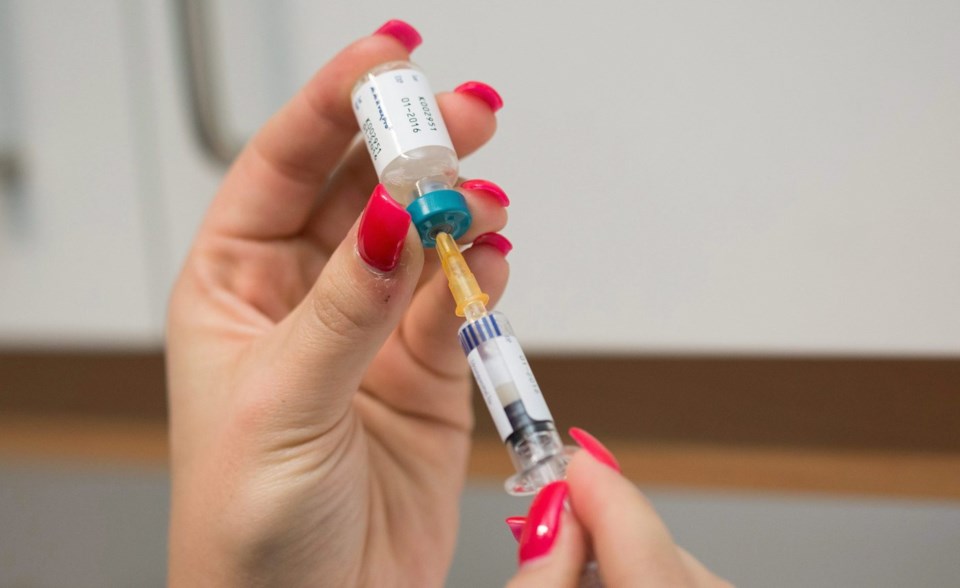FREDERICTON — Nearly 30 per cent of children starting kindergarten in New Brunswick last year did not meet vaccination rules, a notable statistic as an ongoing measles outbreak in the province involves largely people under the age of 19.
The most recent figures say 71.8 per cent of students who began kindergarten in fall 2023 were given the required nine vaccinations against diseases such as measles and polio. Vaccination rates were down from the 2022-23 school year, when 73.9 per cent of kindergartners were fully vaccinated before starting school.
Under the Public Health Act, vaccinations have been required since 1982 for all children entering kindergarten in the province.
New Brunswick is currently in the middle of a measles outbreak that began with a travel-related case in late October. As of Wednesday, there were 50 cases of measles in the province — all in the Fredericton area and parts of the Upper Saint John River Valley — with the majority of infections in people 18 or younger.
The current outbreak is substantially bigger than the province's last recorded measles outbreak in 2019, when there were 12 cases in total. It is part of a trend of rising measles cases across Canada — as of Nov. 9 there had been a total of 130 cases this year.
Ian Culbert, executive director of the Canadian Public Health Association, said one of the most likely reasons for the increased number of unvaccinated students entering schools is parents and the health system playing catch-up from interruptions caused by the COVID-19 pandemic.
Poor access to a primary care physician is another significant driver behind fewer children being vaccinated, he said.
"Your primary health care provider would be able to look up whether or not you've been vaccinated. It also helps public health authorities target vaccination clinics and programs into communities and parts of the province where there's reported under-vaccination," he said in an interview Wednesday.
Culbert also acknowledged vaccine hesitancy can play into low immunization rates, but New Brunswick's report on vaccination rates said parental objection to vaccines accounted for just 0.2 per cent of kindergartners in the province.
One of the best ways to address lower vaccination rates in children is to have public health work with schools to host vaccine clinics, Culbert said. He also said it is "urgent" that schools ensure students who aren't immunized stay home during the current measles outbreak.
"It's (important) for both the children (and) for everyone within that child's circle," he said. "Not only are (children) at risk, they are also at risk of spreading it on to other children within the school system, but also outside the school system .... You don't know who else is on the bus or what the condition of their immune system might be."
New Brunswick's Department of Education did not respond immediately to questions about schools' response to unvaccinated students in classrooms.
This report by The Canadian Press was first published Nov. 27, 2024.
— By Cassidy McMackon in Halifax.
The Canadian Press




